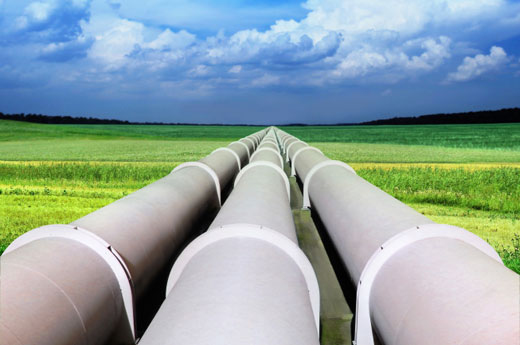by Maya K. van Rossum, Delaware Riverkeeper
The natural gas industry and its pipeline partners are constantly assuring us, through commercials on TV and radio, about the safety of their operations: They don’t hurt the environment; they don’t harm public health; they don’t contribute to climate change; they don’t make life in their host communities unsafe, unhealthy, or unsavory. If all of this is so true, then why do they spend so much of their time trying to weaken the laws intended to protect our communities and the environment?
If gas drilling and pipeline operations are so safe, then why should compliance with protective environmental laws matter? They matter because drilling and fracking processes, pipelines, and compressors are neither safe nor benign when it comes to their impacts on our communities, our environment, and our future.
Right now, Congress—at the behest of the pipeline companies—is fast-tracking a law that would undermine environmental protections that would otherwise apply to the construction and expansion of pipelines by limiting the amount of time agencies have to review pipeline projects and put in place conditions intended to avoid (to the degree possible) polluting our water and air, damaging our wetlands and forests, and harming the private and public lands through which they cut. The proposed law would limit the time allotted to federal and state agency reviews to 90 days (120 days in exceptional circumstances). In that time, the agencies would need to assess all of the potential harms and put in place all of the necessary safeguards to ensure that communities are protected from the harms of these projects to the degree mandated by law.
A single 24-mile stretch of one pipeline project in my watershed will affect an estimated 450 acres of land, cross 90 waterbodies and 136 wetlands, and cut through two state-preserved forests—not to mention the uncounted number of private properties taken through eminent domain. And that section is only about half of the total length of the project.
Is 90 days enough time for a state or federal agency to review all the impacts?
The answer is an obvious “no.” And yet, that time limit is what Congress is seeking. If the state or federal agency can’t do the job in the limited time frame this new law would provide, the law would automatically grant the permits being sought. A 2013 report by the Government Accountability Office (GAO) demonstrates that while 90 days may be enough for smaller, simpler projects, larger projects and more complex projects require more time.
Pipeline companies are asserting that delays in the permit review process are impeding their efforts to build more pipelines. However, an industry analysis found that they have “rarely” availed themselves of the legal remedy already available to them—challenging delays in court. If the problem of delays were that bad, wouldn’t they be going to court more?
Pipelines bring ongoing pollution and harm. Every pipeline brings with it a cut across the landscape. Virgin forests, residential communities, pristine waterways, and productive wetlands all must give way when a pipeline comes through.
When forests are cut for a pipeline, the rainfall that once soaked into the forest floor now runs off, contributing to pollution, erosion, and flooding downstream. Streams are “open-cut” to lay pipes across. Wetlands are drained and become lined with grass so they can no longer sustain the quantity and quality of life they once did. And that’s if the pipeline company does a good job.
Pipelines are known to emit methane. More than 1 percent of the gas drilled from a well is lost during the storage and transmission of extracted gas; some estimates put that figure closer to 10 percent. Methane is the second largest contributor to climate change, estimated to be 105 times more powerful than carbon dioxide in warming the earth over the next 20 years.
To move the gas through the pipeline requires compressors. And so, communities are burdened with loud polluting compressors spaced every 40 to 100 miles. Compressors and pipelines are known sources of methane, ethane, benzene, toluene, xylene, carbon monoxide, and ozone.
Many of the new proposed pipeline projects will take the frack-extracted gas to liquified natural gas facilities, from which it will be shipped to foreign countries, preventing it from being here for domestic use and potentially causing the price of gas in the United States to rise.
Pipelines bring tremendous damage, and with the use of eminent domain, they also have a lot of power with which to inflict this harm. Why should they also get the right to avoid the environmental protection laws meant to protect our communities, ones that every other industry has to comply with?
If you are concerned about this legal travesty and want to learn more, go to http://www.delawareriverkeeper.org/act-now/urgent-details.aspx?Id=148 or view the congressional hearing on the proposal at http://www.youtube.com/watch?v=3XAGy55z1Ws. If you want to sign your name to a petition to urge Congress not to pass this bill into law, go to http://petitions.moveon.org/sign/congress-protect-our-1.
And if you want to learn more about the harms of the shale gas development that is at the heart of all this harm, be sure to include Gasland 2 in your summer movie viewing. Better yet, view it (on HBO) with a group of friends.
 Maya K. van Rossum is the Delaware Riverkeeper, and has led the Delaware Riverkeeper Network (DRN) since 1994. The DRN is a regional nonprofit advocacy organization that monitors the river and all of its tributaries for threats and challenges, and advocates, educates, and litigates for protection, restoration, and change. To learn more, visit delawareriverkeeper.org
Maya K. van Rossum is the Delaware Riverkeeper, and has led the Delaware Riverkeeper Network (DRN) since 1994. The DRN is a regional nonprofit advocacy organization that monitors the river and all of its tributaries for threats and challenges, and advocates, educates, and litigates for protection, restoration, and change. To learn more, visit delawareriverkeeper.org





Thank you, Maya, for all the hard work you are doing to try to help stop this ruin of our land, water, air and lives. I know you have your facts correct and I support you and all who work with you in this effort. Please don’t give up, we need more people like you spreading the truth and working for the good of all of us. I am very grateful to you as I know the work you do isn’t easy. Thank you so much!
Maya, The drilling industry calls our home a worksite. The poisons that they spew into our air, land , and water are criminal activities. They claim Jobs and Money as the reason to destroy all of us, including themselves. Slavery was a job. Money corrupts. How are they getting away with this activity? Our state government can not give away public property. Our parks , forest and waterways are being lost for public use daily. Where is Homeland Security?